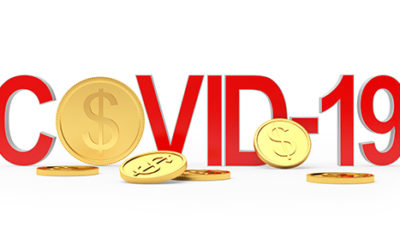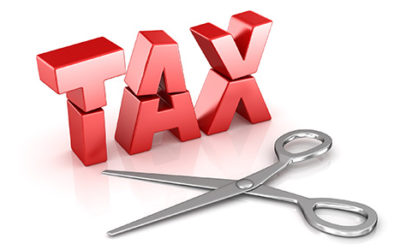SBA Loan Relief and New Lending Now Available For Small Businesses Impacted By COVID-19
Defer Existing SBA Loan Payments for Up To 6 Months
This is at the lender’s discretion, but anyone with a current loan can/should talk with their loan agent. An informational notice about payment deferrals for existing loans from the SBA was just released. This became effective on March 10, 2020 and expires March 1, 2021. This temporary relief applies to 7(a) business loans, 504 business loans, and microloans. The SBA may grant a deferment of payment of up to six consecutive months dependent upon certain circumstances. This initiative is brand new and evolving daily, so we will be constantly monitoring any new updates. Of course, considering your circumstances is at your lender’s discretion, but if you have a current loan you should absolutely talk about this with your loan agent.
Economic Injury Disaster Loans (EIDL) from the SBA
Governor Gretchen Whitmer announced the U.S. Small Business Administration (SBA) has approved her request for a statewide Economic Injury Disaster Loan (EIDL) declaration, opening the opportunity to small businesses to access low-interest loans from the SBA.
What is the EIDL?
The EIDL is a low-interest, fixed-rate loan that can provide up to $2 million in assistance for a small business. SBA’s EIDL funds come directly from the U.S. Treasury. Applicants do not go through a bank to apply, and instead, apply directly to disasterloan.sba.gov/ela.
Actual loan amounts are based on the amount of economic injury. These loans provide vital economic support to small businesses to help overcome the temporary loss of revenue they are experiencing because of COVID-19. EIDLs do not replace lost sales or revenue.
Is my business eligible to apply for the EIDL?
The EIDL provides up to $2 million of financial assistance to small businesses or private, non-profit organizations that suffer substantial economic injury as a direct result of the declared disaster. This includes:
- Businesses directly affected by the disaster
- Businesses that offer services directly related to the businesses in the declaration
- Other businesses indirectly related to the industry that are likely to be harmed by losses in their community (Example: Manufacturer of widgets may be eligible as well as the wholesaler and retailer of the product.
Depending on your industry, a small business could be defined as business with a maximum of 250 employees or a maximum of 1,500 employees. The business can be a sole proprietorship, LLC, corporation, or private non-profit. To see if your business qualifies, see the https://www.sba.gov/document/support–table-size-standards.
Organizations that are not eligible include religious and charitable organizations, gambling concerns (Ex: Concerns that derive more than 1/3 of their annual gross revenue from legal gambling activities), and casinos and racetracks (Ex: Businesses whose purpose for being is gambling (e.g., casinos, racetracks, poker parlors, etc.) are not eligible for EIDL assistance regardless of 1/3 criteria above.
Note: Businesses that can use conventional funding facilities are encouraged to do so, when possible. The SBA conducts a “Credit Elsewhere” test to determine if it is evident that a business has sufficient cash flow to obtain conventional financing.
What can the funds be used for?
These working capital loans may be used to pay:
- fixed debts
- payroll
- accounts payable and
- other bills that can’t be paid because of the disaster’s impact.
The working capital loan may not be used for refinancing, expansion, growth of any kind, or infrastructure improvements.
What is the lending criteria?
- Credit history – Applicants must have a credit history that is acceptable to the SBA. The SBA will look at extenuating circumstances if bad credit is recent and can be shown to be caused by the COVID-19 pandemic.
- Repayment – As with all loans, you will need to prove that you have the ability to repay the loan.
- Collateral – When applying for loans greater than $25,000, the business must provide collateral The SBA requires borrowers to pledge what is available including real estate. Loans under $25,000 can be unsecured.
What are the terms?
The interest rate is 3.75% for small businesses without credit available elsewhere; businesses with credit available elsewhere are not eligible.
SBA offers loans with long-term repayments in order to keep payments affordable, up to a maximum of 30 years. Terms are determined on a case-by-case basis, based upon each borrower’s ability to repay.
When can I apply?
Applications for Economic Injury Disaster Loans are now open in Michigan. Click here to access the loan application disasterloan.sba.gov/ela.
Michigan Small Business Relief Program
The Michigan Small Business Relief Program will provide up to $20 million in support for small businesses negatively impacted by COVID-19. The funding is divided between $10 million in small business grants and $10 million in small business loans to support businesses facing drastic reductions in cash flow and the continued support of their workforce. Funds for the program are expected to be available no later than April 1, 2020.
When can I apply?
Applications for loans and grant support under the Michigan Small Business Relief Program are open now. Click here to access the application.
The Bottom Line
Contact us to learn more about the SBA’s EIDL Program or Michigan Small Business Relief Program and see if it may apply to your business.


